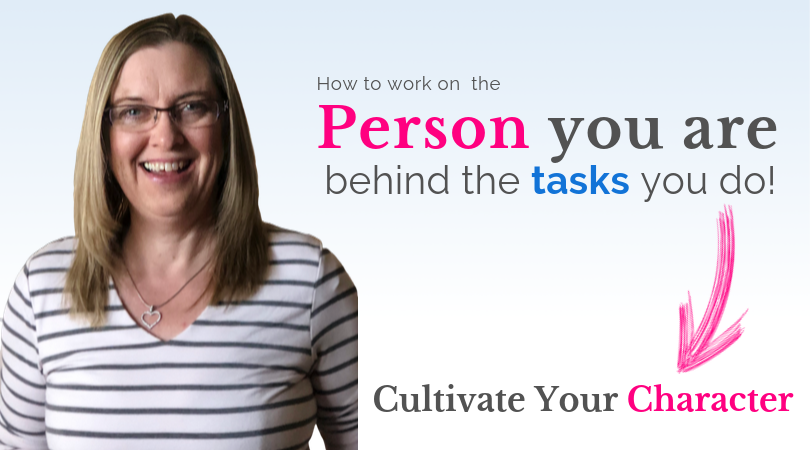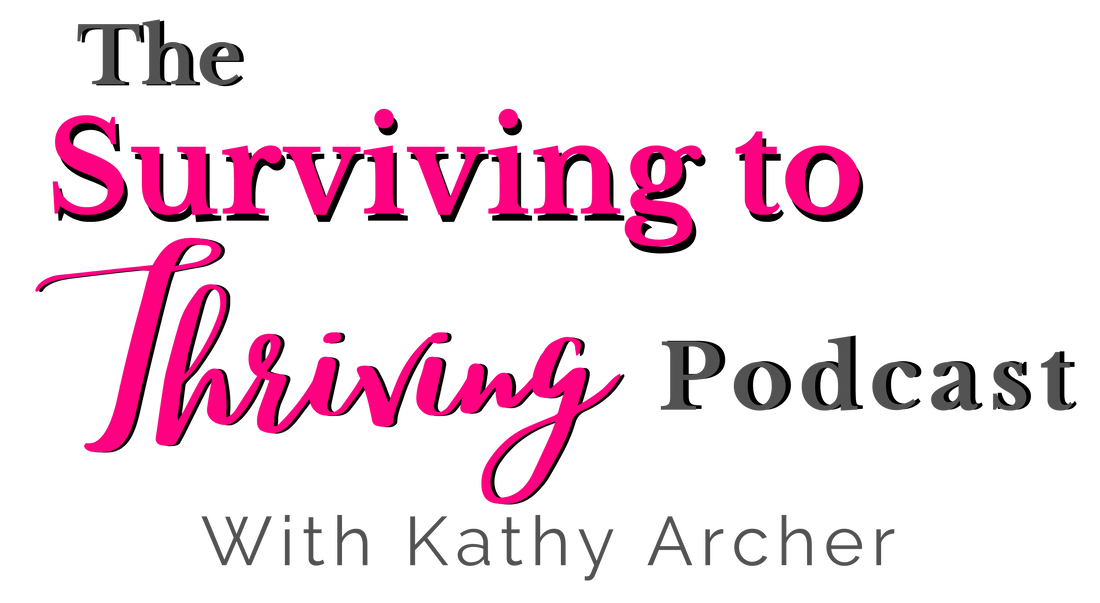|
Do you often wonder what you have to DO to be a better leader?
Be? Yes, “BE.” Who do you need to BE, to be a good leader? Consider the HOW of what you DO Take a moment to consider who are you BEING when you do your job?
Have you ever considered your character? Who are you being when you do your job, is a description of your character. It’s the essence of who you are. But when was the last time you had a conversation about developing your character? Or when did you last consider why it might be important to develop your character? And have you ever wondered how to develop your character? For most of us, the answer is…never! Perhaps it’s time to. How you are BEING is a description of your character Your character is your unique combination of who you are: personality traits, values, ethics, morals etc. No two of us are the same. The problem is, we don't think about who we are being or our character. Instead, we follow the model of leadership passed down for generations. And honestly, most of us don't fit into that model. So what happens is we don't feel ourselves when we are trying to lead. This is because we are so often unaligned with our authentic selves. This vast chasm exists between who we think we should be and who we truly are. That leaves us floundering somewhere in the middle and not very happy. When you develop your character, you’ll be happier! If you take the time to develop your character, you will feel happier, more fulfilled and content. It’s because, instead of stepping into the role and trying to lead how you should lead, you will learn to lead from your character strengths. Instead of feeling like you put on a mask or persona when you lead, it will feel genuine and be effective. Leading with your character strengths lets you feel more authentic from when you get up till you fall asleep at night. Why don’t we lead with our character strengths? Most of us truly are not aware of who we are at our core. In the hustle and bustle of growing up, raising a family and advancing in our career, we’ve lost sight of ourselves. Many of us don’t really know what makes us tick. We are not sure what drives us. We don’t know how to use our best gifts and talents to lead, because quite frankly, we don’t know what our best gifts and talents are! We’ve never done the work to uncover, discover or awaken them. Back to describing character Once again, I ask you to think about how we describe other people and consider for a moment how others might describe you. Pay attention to the word character in each of these sentences. Often, we talk about someone’s character in general statements such as, I admire her character.
Now think about specific descriptions of other people’s character traits. Consider again, how people might describe your traits? These are some ways we speak in awe of certain women’s characteristics:
Don’t forget, not all character traits are “good.” Reflect on this list below. These are times we cringe at character traits that some women exude:
I hope you are now seeing how important it is to cultivate and develop your character. Here is how your character defined A little overview: Your character is your unique combination of traits that distinguish you from others. It is how others perceive you, though, not how you describe yourself. Let me say that again. Your character is someone else's perspective of you. It's not how you see yourself and wish others would see you. You certainly can impact or influence what others think about you, and you should. Ultimately, how people describe your character is their perception, which makes character development tricky. Perhaps you wonder if character development is about getting people to like you. No, that's not quite it. Your job as a leader is to guide people to a vision by inspiring them to grow and help them develop so that together, you can reach that vision. Your influence and impact on people can motivate them to be their best selves, which is incredibly helpful to reach team and organizational goals and serve clients. To achieve that level of impact on others, it certainly is easier if they like you. But still, it's less about people liking you and more about them respecting you. Why you should care about how people define your character Your character is so important because it influences what people think about you and, therefore, its impact on them. When your character is strong, you have a good reputation. It's that reputation that garners others' respect. Note here. Someone doesn't have to like you to respect you. The two do not always go hand in hand. It's respect though, that allows your team to be patient with you, persist for you, and push themselves. They respect you, often because they believe in you and your message, which is inextricably intertwined with your character. They will conduct themselves in the way because you've inspired them and motivated them by your actions, your conduct and by the type of person you are. This is how you influence people’s description of your character People define your character by your conduct. It’s your interaction with them that impacts what they think of you. But what they think about you is not the endpoint. Their opinion of you is only the catalyst for their behaviour. Your actions, your conduct, in essence, your character in any given moment will influence others in one of two directions. Backwards or forwards. They will either take positive action or negative action. If you've just been short with your team during a staff meeting, your actions, tone, and message may leave a bad taste in their mouth. Now, they have a couple of options. First, they can head over to the water cooler and whisper about what time of the month it is for you. If that doesn't feel like a good idea, they might just head back to their office, keeping out of your way. Back in the safety of their office, they'll procrastinate and check out their newsfeed. The chance that they will take proactive action to get you all back on track is slim to none. They maybe are motivated to bring you the late report or pull the reins a little tighter on their team, but consider the tone they will now be doing it in. I doubt they'll be enthusiastic, eager or engaging. Now, I'm not suggesting we need to be chipper all of the time, but as you'll see, it's the sum of your actions and behaviour over time that creates how others define your character. The problem is how you conduct yourself in stressful times tends to outweigh other people's memory of your conduct during smoother times. Therefore, we need to be even more diligent about our behaviour during crises. How to cultivate your character Much of our actions are automatic, though. Our behaviour is habitual, reactionary or rote. We don't think about it, we are not conscious, and often, our unchecked emotions are running the show.
But that kind of behavior does not create strong followers. It doesn’t develop leadership in our employees. Instead, it creates a toxic work environment. That kind of conduct creates a culture where people are just putting up with things until they can go home at the end of the day or find another job. How we create the character we desire While it's easy to point out another's characteristics, recognizing our own is sometimes more difficult. Even more challenging than that is defining and developing the traits we want to build in ourselves and lead with. You may be a little skeptical right now, questioning how you can build character. I’ll be honest with you. Character development is not easy work. Developing your character takes time and attention. It requires you to be willing to be vulnerable and explore some of the messy and painful places of your life. Not just once, but again and again.
3 steps to develop your character
Allow me to let you in on a little secret. We try and mould others' character all the time. It’s easiest to see with children. Parents aim to make their children nice, kind, responsible, caring, disciplined or generous. How do they do that? By teaching them, role modelling for them and correcting them. The same is true for you. If you want to develop your character, you will need to:
Next Steps What do you need to teach yourself?
2 Comments
22/10/2018 06:31:34 am
Worry is a perplexing emotion. It can never make an individual compassionate. It can never make a person accommodating and concerned. Every individual worries and it is quite obvious. It is beneficial when it spurs the person to take the right measures to resolve the complication. Well, worry is the integration of unrelenting jumpy thoughts and threats- which can be paralyzing at any juncture. Better you stop worrying and start your groundwork for your future ambitions so that you can attain more success and gratification.
Reply
22/10/2018 12:11:50 pm
Yes, Donny, I think you raise a valuable point. When we realize we are worrying, it's a red flag. Time to get out of unconscious thinking and get focused on being intentional!
Reply
Your comment will be posted after it is approved.
Leave a Reply. |

Available on Amazon
Archives
May 2024
|
|
Leadership TRAINING for Nonprofit Leaders
Become a confident and competent nonprofit Leader: Join The Training Library membership Executive and Leadership COACHING Leadership Coaching for Nonprofit Executives, Leaders and ManagerCoaching |
PODCAST for Nonprofit Leaders
The Surviving to Thriving podcast: Strategies, systems and support to lead your nonprofit with confidence FREE RESOURCES to Grow your Leadership Skills Free Leadership Training Resources, Worksheets and Templates |
Become a CONFIDENT LEADER
|




 RSS Feed
RSS Feed
